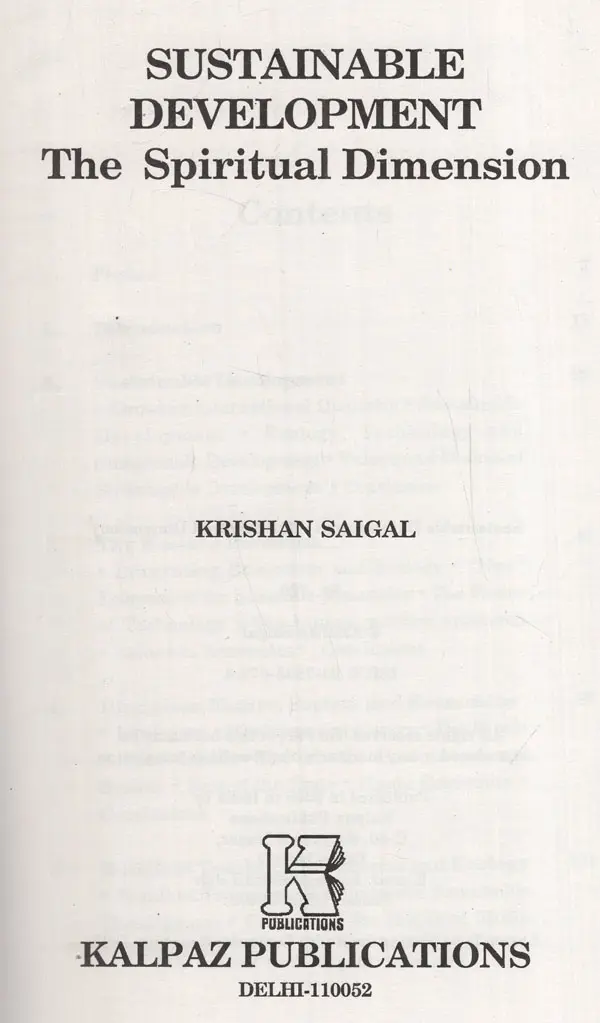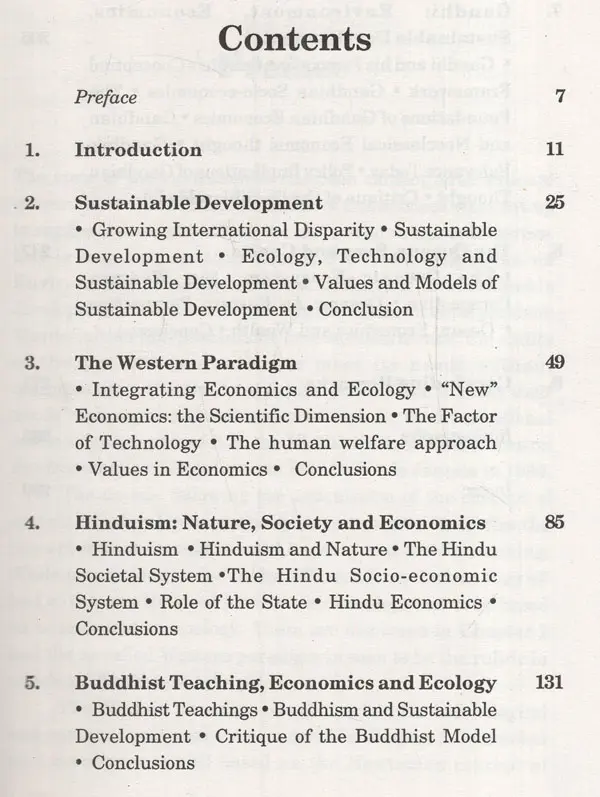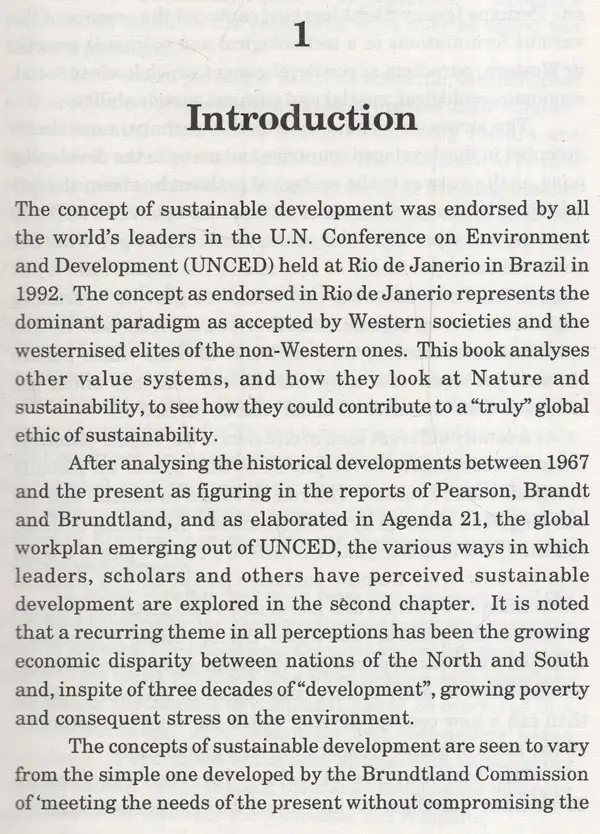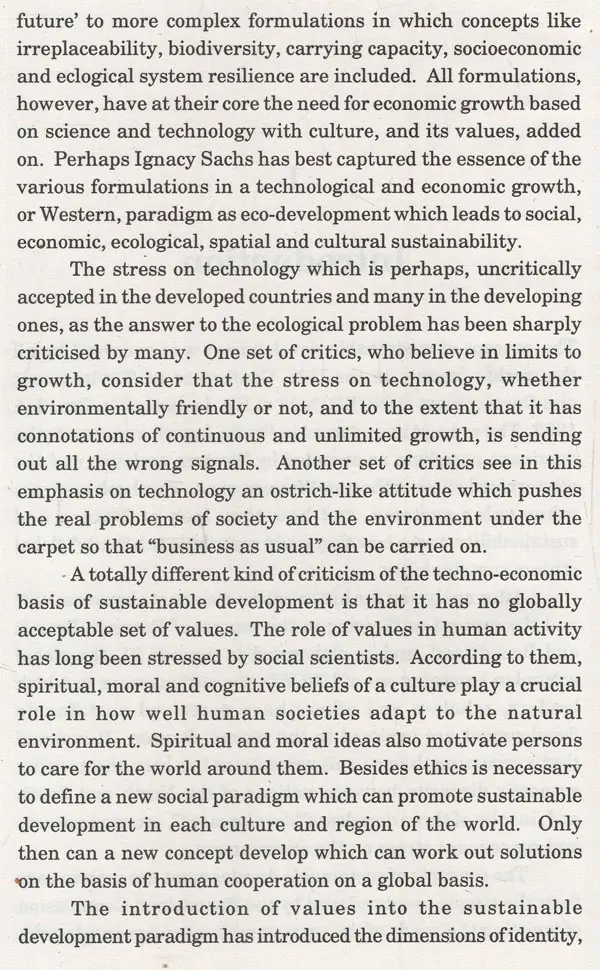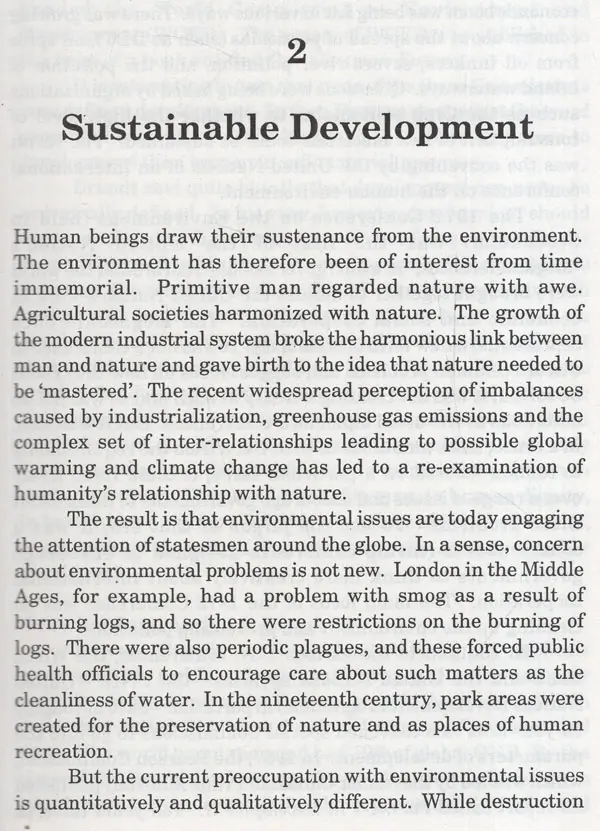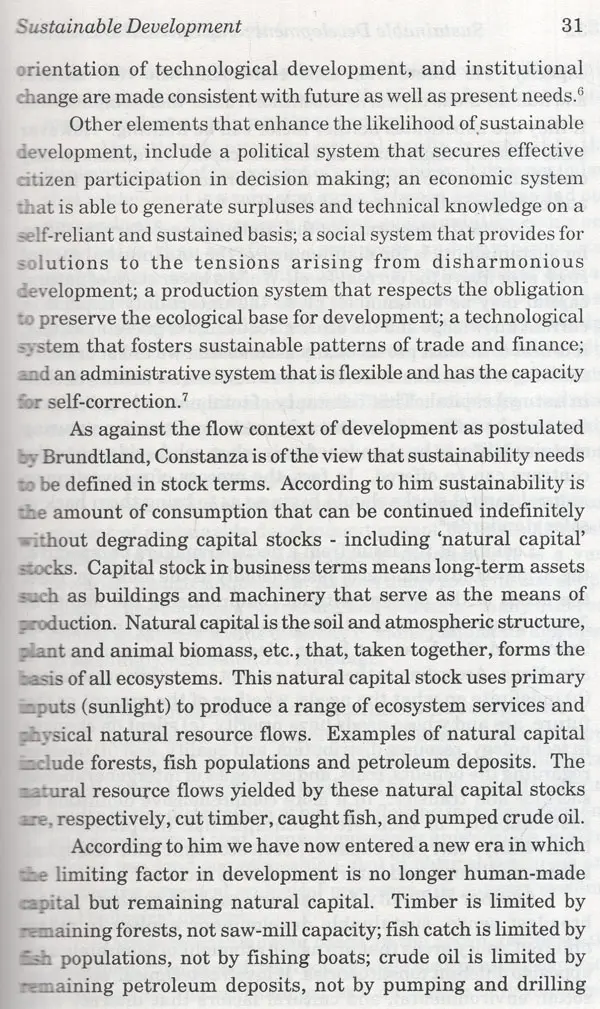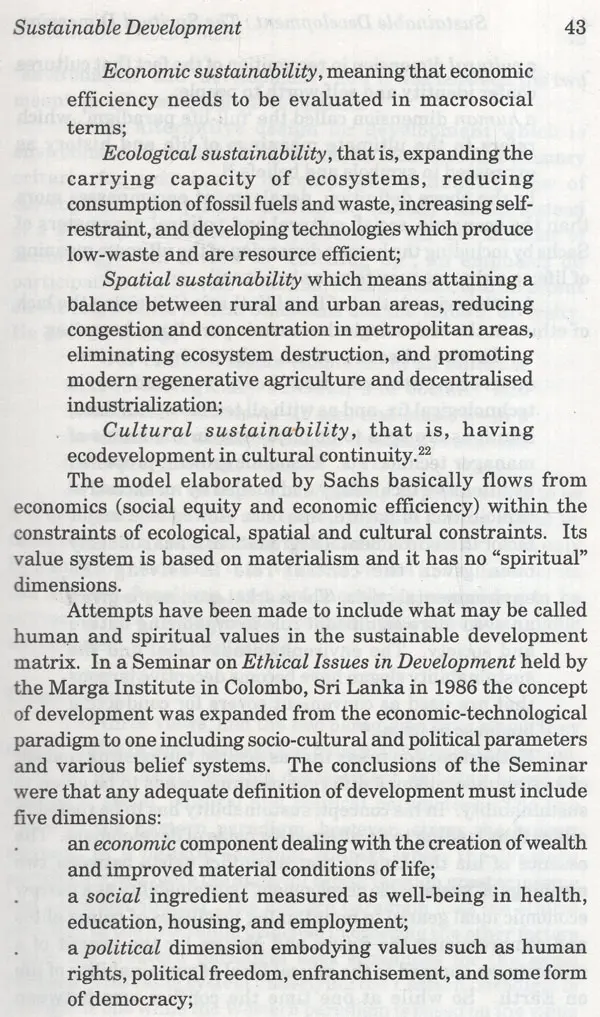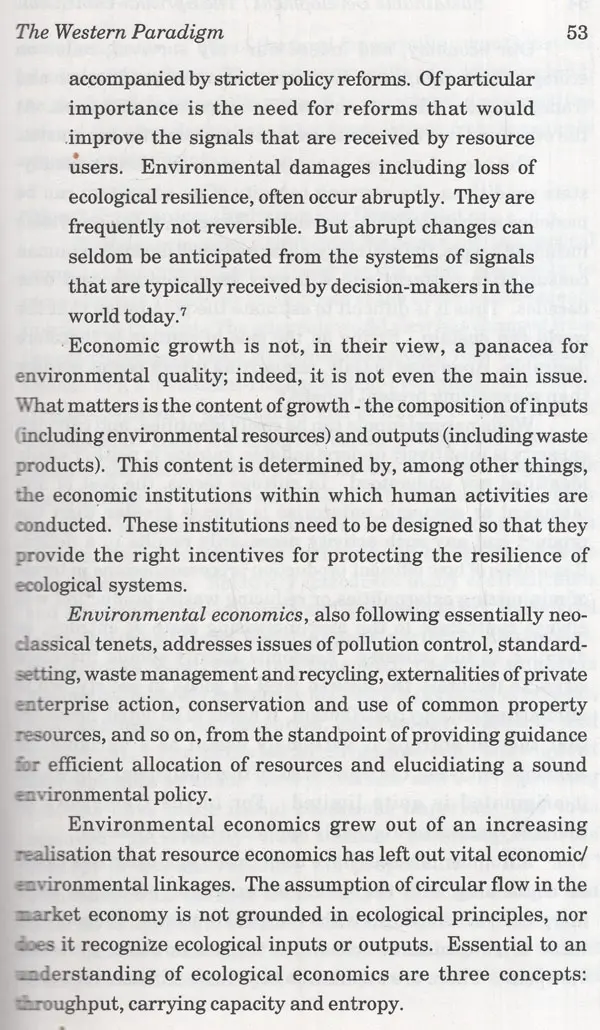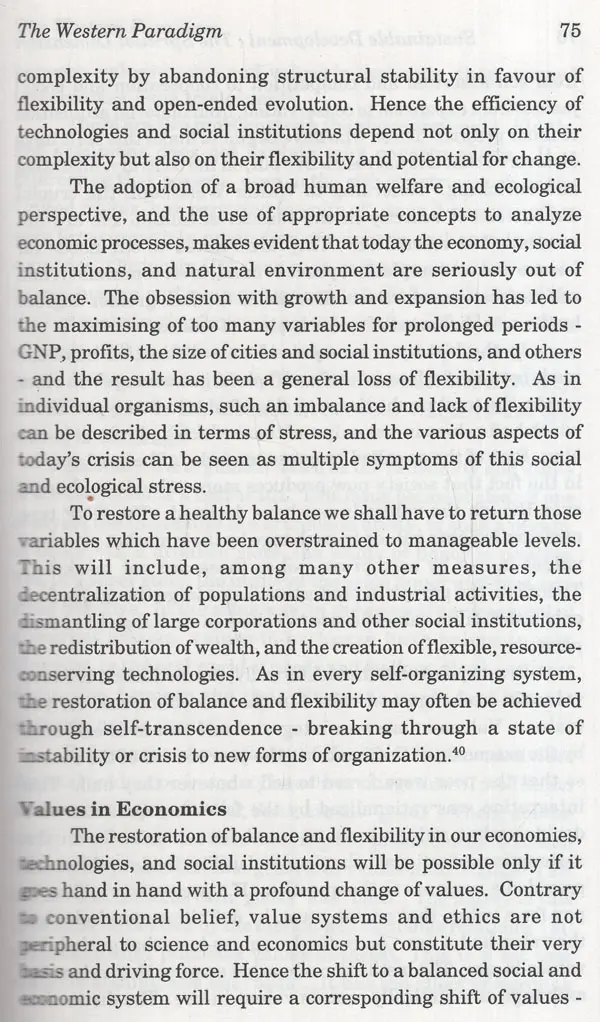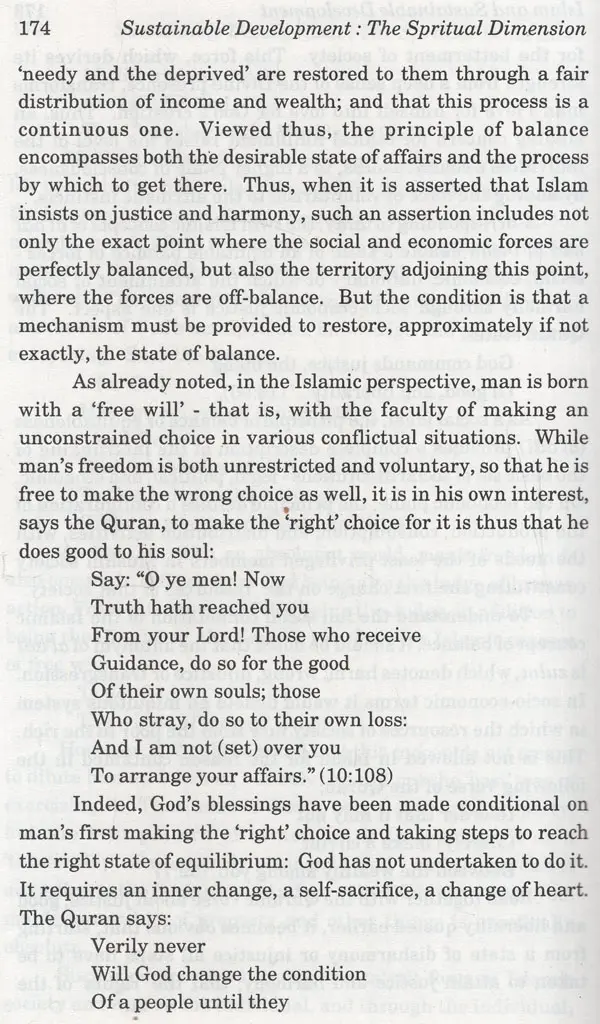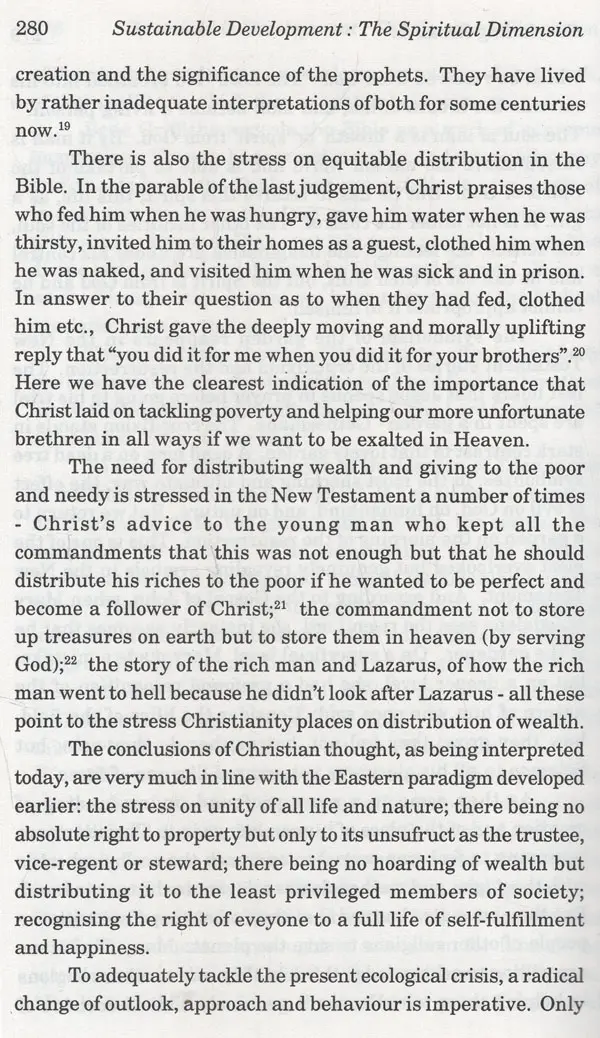
Sustainable Development: The Spiritual Dimension (An Old & Rare Book)
Book Specification
| Item Code: | UAN717 |
| Author: | Krishan Saigal |
| Publisher: | Kalpaz Publications |
| Language: | English |
| Edition: | 2008 |
| ISBN: | 8178356724 |
| Pages: | 310 |
| Cover: | HARDCOVER |
| Other Details | 8.80 X 5.80 inch |
| Weight | 530 gm |
Book Description
He has published several articles of planning, rural development, defense and international relations, sustainable development and Gandhian philosophy.
He is the author of books on Policy Making in India, Vedic Management, Science and System of the Upanishads and God and Goddesses in Hinduism.
The decade following the articulation of the concept of sustainable development was spent in trying to concretize the concept so that it could be used in policy and decision making. While perceptions varied in the different formulations they all had at the core the need for economic development to be based on science and technology. These are discussed in Chapter 2 and the so called Western paradigm in seen to be the rubric in which all discussions take place.
The Western paradigm based on scientific, technological and economic perspectives is explored in Chapter 3. It is noted that economics is still based on the Newtonian concept of linearity and predictability and has ignored the later development of the uncertainty of Heisenberg, the fluctuations from chaos to order of Prigogine and the self-organisation of Jantsch. The latest developments in science has led to Nature being looked at in three ways: as the biosphere being in a state of steady equilibrium; as the biosphere being in constant change through fluctuations from chaos to order; and to the biosphere being an evolutionary self-regulating entity. There is thus a disconnect between economics and the post-Newtonian developments in science.
The Western paradign aspires to be objective, value-free and based on science, technology and economics. The Eastern paradigm is, in contrast, value-loaded in many ways. It also postulates that a change in human will is necessary. In Chapters 4,5 and 6 we consider the major eastern religions of Hinduism, Buddhism and Islam and the value premises underlying them. Though there are some differences between the three religions there are many commonalities: they all stress the holistic and evolutionary nature of life; all give primacy to human beings and place them in harmonized relations with their environment, social and natural; they stress that everything on earth belongs to God; that man is a trustee and has to act according to God's will; that man has to harmonies his individual needs with that of the community; that equity has to be attained through a voluntary restraint on consumption. The communitarian aspect is obviously in complete contrast to the highly individualized concept of the west. It also needs to be noted that aspects of the eastern or spiritual paradigm are compatible with post Newtonian science.
**Contents and Sample Pages**
